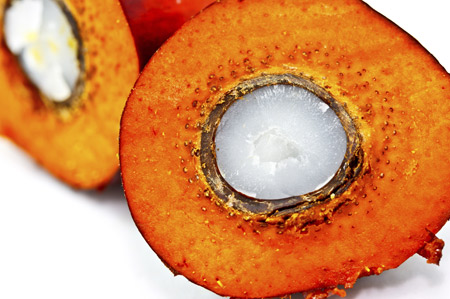Palm oil price falls as Malaysia renews export levy
Category: Oilseeds
 (Agrimoney) – Crude palm oil futures fell to their lowest in nearly six weeks, after Malaysia announced that it would next month reimpose taxes on exports of the vegetable oil.
(Agrimoney) – Crude palm oil futures fell to their lowest in nearly six weeks, after Malaysia announced that it would next month reimpose taxes on exports of the vegetable oil.
Malaysia, the second-ranked palm oil producing and exporting country, will next month import a duty of 4.5% on shipments of the vegetable oil. Palm oil tariffs are set month-by-month.
In Kuala Lumpur the June contract for crude palm oil fell to its lowers point since February 4, before recovering slightly to close the session at 2,199 ringgit per tonne, down 1.7% on the day.
Soft exports
Malaysia suspended export duties on palm oil in September, in an effort to support prices by boosting exports and shrinking domestic stocks.
The return of export tariffs has provoked concerns over reduced competitiveness for palm oil, at a time of bumper supplies of rival vegetable oil soyoil, after a succession of strong harvests in South America and the US.
World soyoil production will rise by 2.4m tonnes to a record 47.4m tonnes in 2014-15, according to the US Department of Agriculture.
Even without the tariff, Malaysian exports have struggled, in February hitting their lowest in nearly eight years, although there have been signs of some stabilisation.
‘Nothing seems to work’
And they have fallen further since this month.
Cargo surveyor Societe Generale de Surveillance showed Malaysian palm oil exports for the first half of March were down 5.2% compared to those for the first half of February.
Intertek Testing Services reported that Malaysian palm oil exports were down 3.4% over the same period.
Edward Hugo, analyst at broker VSA Capital, said that it was “clear that exports are in trouble and the removal of export tariff hasn’t done much to improve the situation.”
“Nothing seems to work,” in boosting exports.
Domestic processing
Meanwhile, the lack of tariffs has proved a headwind Malaysia’s large domestic palm oil refining industry.
Export restrictions on crude palm oil encourage local processing, while duty-free exports mean more crude palm oil leaving the country, rather than going to local refiners.
Mr Hugo said: “Domestic processing should benefit as producers would rather send palm oil to refiners and avoid export tax.”
Indonesia, the world’s largest palm oil producer, retains its tariff-free export policy, implying that Malaysian exporters will struggle to compete.
However Indonesia, which also has a sizable refining industry, may face similar pressures to support local processors.




